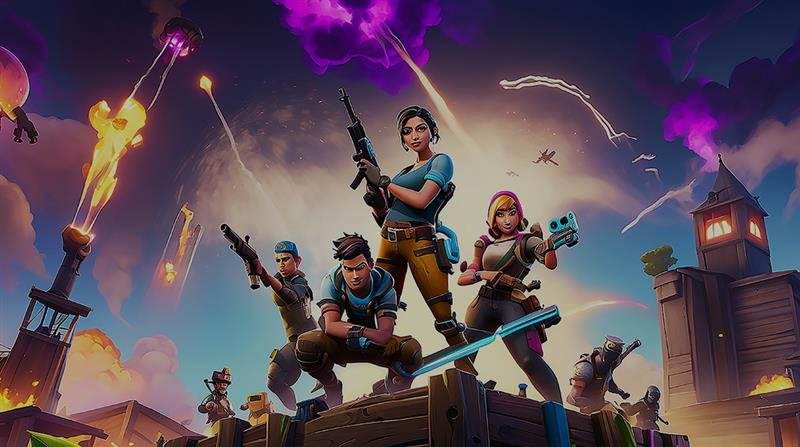The gaming industry is growing at lightning speed. Every few years, new technology changes the way players experience games. Today, one of the most exciting shifts is the rise of Virtual Reality Game Development Services. VR is no longer a futuristic dream; it’s here, and it’s changing the way we play. VR immerses players in the game, as opposed to traditional games where they gaze at a screen. It lets players feel like they are truly part of another world. With the right headset, controllers, and VR game design, players can walk and move. They can fight and interact as if the game is happening around them.
But what makes VR game development services so valuable for gamers, businesses, and developers? Let’s explore the top benefits of VR game development services in detail.
1. Realistic and Immersive Experiences
One of the main reasons VR games are so popular is their ability to create lifelike experiences. Instead of simply pressing buttons, players step into the action.
For example:
- In a VR adventure game, you don’t just watch a cave, you enter it, look around, and explore it yourself.
- You do more than merely control a player in a virtual reality sports game. You swing the racket. You throw the ball. You kick with your own movements.
The combination of 3D visuals, realistic sound, and motion-sensing controllers makes the gaming experience highly immersive. Players often describe it as “being inside the game” rather than just “playing it.”
2. Stronger Player Engagement
Player engagement is everything in gaming. The more time players spend in a game, the more successful it becomes. VR Game Development Company, like Team of Keys, offers higher engagement levels because it keeps players active and curious.
Research shows that VR gamers are likely to spend 30% more time playing compared to traditional gamers. Why? Because VR feels fresh, interactive, and exciting. Players don’t just sit and play; they explore, interact, and connect with the environment.
This deeper engagement helps developers and businesses build long-lasting relationships with their audience.
3. Next-Level Interactivity
Traditional games allow limited interaction. You press buttons or use joysticks to make things happen. But VR changes that completely.
In VR, the player’s own movements control the action. You can:
- Choose objects with hand gestures.
- Walk around to explore a space.
- Solve puzzles by moving pieces in real-time.
- Fight battles with natural body movements.
This next-level interactivity turns gaming into an active experience instead of a passive one. Players feel like they are shaping the game’s outcome, not just watching it unfold.
4. A Platform for Innovation
VR game development services open endless possibilities for innovation. Developers have the freedom to experiment with new ideas and gameplay mechanics that aren’t possible in traditional formats.
Some innovations include:
- Gesture-based controls that let players use their hands naturally.
- 360-degree storytelling, where the player chooses what to look at and how the story moves forward.
- Cross-industry applications, such as VR-based fitness apps, therapy sessions, or educational simulations.
A great example is VR fitness games. Instead of running on a treadmill, players can fight enemies or dance to music while burning calories. Similarly, VR is now used for training in the medical field, the military, and even sports coaching.
5. Learning and Skill Development
VR is not just about fun, it’s also a powerful learning tool. Games that combine entertainment and education can help players build valuable skills.
For instance:
- History games can transport players to ancient civilizations, helping them learn through firsthand experience.
- Puzzle and strategy games improve problem-solving and critical thinking.
- Multiplayer VR games encourage teamwork, leadership, and communication.
VR helps people learn more quickly and retain information longer by stimulating both the mind and the body. This makes VR a perfect tool for both gaming and training purposes.
6. A Fast-Growing Market
The VR gaming market is expanding rapidly. According to industry reports, More virtual reality gadgets, such as the HTC Vive, PlayStation VR, and Oculus Quest, are becoming available. As a result, demand for new VR content is skyrocketing.
For businesses, this means a golden opportunity. By investing in VR Game Development Services today, companies can position themselves at the heart of this booming industry. The revenue potential is huge, with opportunities in direct game sales, in-game purchases, and subscription models.
7. Competitive Advantage
It's difficult to stand out in the crowded gaming market. But VR games offer a competitive edge. They look modern, innovative, and futuristic. Company that add VR games to their portfolio are often seen as industry leaders.
Players also love to share their VR experiences on social media. A video of someone battling zombies in VR or exploring a fantasy world grabs attention and spreads quickly. This free, organic promotion helps boost brand visibility and reach.
8. Multi-Platform Compatibility
VR games today are not limited to one system. Developers can create VR experiences for:
- PC VR setups.
- Console-based VR like PlayStation VR.
- Standalone headsets such as Meta Quest.
- Mobile-based VR systems.
This cross-platform flexibility helps developers reach a larger audience. Whether players own a high-end PC or a simple standalone headset, they can enjoy the game in VR.
9. Health and Fitness Benefits
Most traditional games are sedentary. VR changes that by encouraging movement. Many VR games involve dancing, boxing, or active exploration.
Some benefits include:
- Burning calories while gaming.
- Improving reflexes and coordination.
- Reducing stress through fun physical activity.
This mix of health and entertainment makes VR especially appealing to fitness-conscious players. Games like Beat Saber and Supernatural prove that VR can be both fun and good for the body.
10. Future-Proof Technology
VR is not a passing trend, it’s the future. Every year, technology makes VR games more realistic. With improvements like haptic gloves, better headsets, and AI-driven interactions, the future of VR gaming looks brighter than ever.
By investing in VR game development today, businesses and developers are preparing themselves for tomorrow. It’s a long-term strategy that will keep them ahead of competitors.
Final Thoughts
Virtual Reality game development services are changing the face of gaming. They offer immersive experiences, higher engagement, better interactivity, and countless opportunities for innovation. Beyond entertainment, VR also supports learning, fitness, and skill-building. For businesses, the booming VR market promises high returns and a stronger brand presence. For developers, it’s a creative playground with endless possibilities. And for players, VR is pure magic, turning dreams into interactive worlds. Investing in VR game development services today isn’t just about keeping up, it’s about leading the future of digital entertainment.











